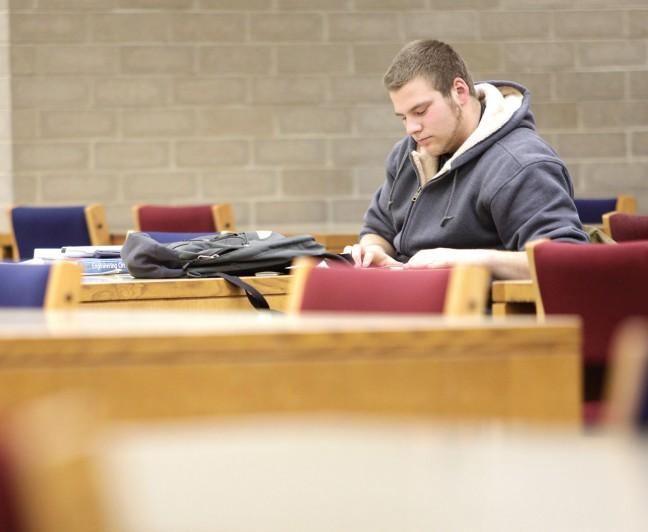In today’s fast-paced society, working hard and achieving goals is on everyone’s minds, especially college students. But at what cost do students today aim to succeed?
College students deal with a lot at once. Going to college means learning how to function as an adult, creating new friendships and relationships, exploring new passions, all while trying to balance schoolwork, clubs, jobs and other commitments.
It’s no wonder that magazines and online news sources offer advice on “how to pull all-nighter” when studying for exams. With College Library open 24 hours Monday-Thursday, it is both common and socially acceptable for students to study at all hours of the night. During finals, the university even offers students a free late-night shuttle that runs from midnight-6:00 am, traveling between College Library and University Residence Halls.
But how healthy is actually depriving oneself of sleep? Should the university really be promoting this kind of behavior?
The CDC recommends that adults stay awake no longer than 17 hours straight. Furthermore, young people need more sleep than adults, as their bodies and brains are still growing.
According to the National Sleep Foundation, a lack of sleep actually changes your metabolism, making you feel hungrier than normal and crave carbohydrates and sugary foods more often. Over time, this can increase risk of obesity. Furthermore, lack of sleep can cause short-term euphoria, which impairs judgment and encourages risky behavior.
Aside from a lack of sleep, college culture often encourages students to take on multiple responsibilities in clubs, Greek life and sports, all while trying to keep up with demanding coursework. While it’s great for students to get involved on campus, the reality is that there is only so much time in the day. A reported 80% of students feel overwhelmed by their responsibilities, and 50% become so anxious they struggle in school.
Though I fully support the idea that students should stay busy in school, we should not be encouraging unhealthy habits in a generation that is already vulnerable to mental illnesses. According to the American Psychological Association, the number of adolescents and young adults experiencing psychological distress, major depression and suicidal thoughts increased significantly over the past 10 years.
Professor Jean Twenge cited a lack of sleep in younger generations as one of the possible causes of this. Another possible cause is the use of social media and how it affects our daily social interactions.
As college students, unfortunately, it is very difficult to stay unplugged for more than a few minutes. Whether it’s a text from Mom, an email from a professor or the next viral tweet, it feels like we’re missing something whenever we don’t check our phones. But once again, I feel the university almost encourages the use of technology in the classroom.
While certain professors have banned laptops from the classroom, most utilize Canvas and other online sources to communicate and provide students with class materials. Though there is nothing inherently wrong with the use of technology, it is worth noting how it possibly plays into mental health.
When we’re constantly checking our phones, emails and Canvas, it feels like we have more and more to worry about. With all of the other things going on in the lives of college students, this just adds to the stress and anxiety that many students face about keeping up with everything.
Overall, there may be no easy solution to ending the psychological stress that college students face, but there are things that students can do to help themselves. Getting a good amount of sleep every night is the key to staying energized and healthy, and knowing one’s limits in how much they can actually take on is extremely important.
Though we all struggle from time to time, the role that the university and other factors play in students’ deteriorating mental health is concerning. Encouraging students to put their mental and physical health first should be the university’s priority, and while students may stay up late once in a while to complete an assignment, consistently staying up late to study should not be normalized.
Courtney Degen (cdegen@wisc.edu) is a junior majoring in political science and journalism.


